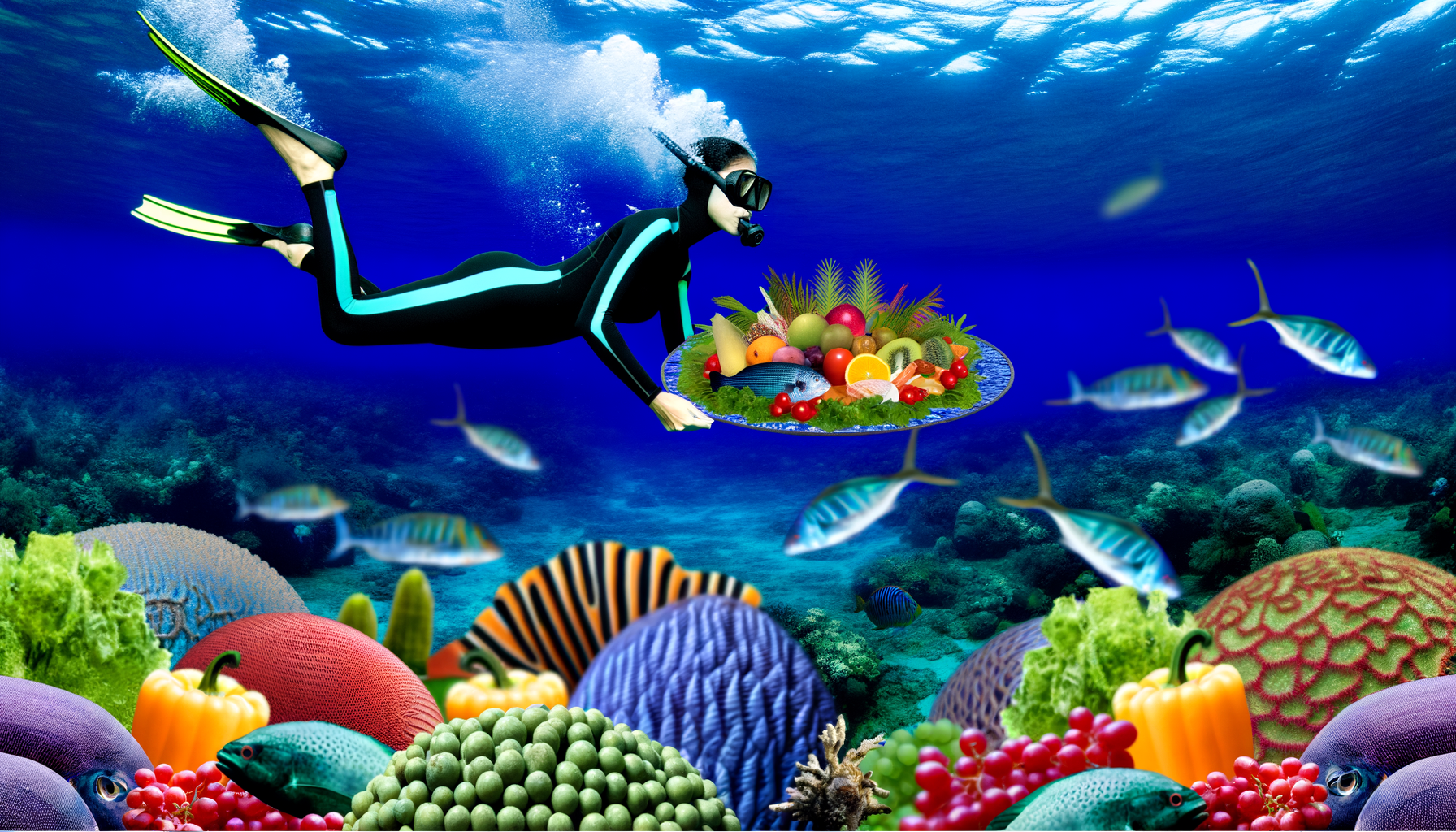Understanding the Complexities of Calorie Tracking for Freediving and Underwater Sports
When it comes to freediving and other underwater sports, nutrition plays a critical role in performance, safety, and overall health. The unique demands of these activities require a tailored approach to calorie tracking and nutrition planning. Here’s a comprehensive guide to help you navigate the complexities of nutrition under pressure.
The Importance of Calorie Tracking in Underwater Sports
Calorie tracking is essential for any athlete, but it is particularly crucial for those involved in freediving and other underwater activities. These sports require a combination of physical endurance, mental focus, and precise energy management.
For divers, the primary goal is to ensure they have the necessary energy reserves to complete their dives safely and efficiently. This involves understanding how many calories are expended during various underwater activities. For example, a diver might burn calories at different rates depending on the intensity and duration of the dive, as well as the type of diving being done (e.g., scuba diving, freediving, or snorkeling).
Macronutrient Balance for Divers
A balanced diet with the right macronutrients is vital for divers. Here are some general guidelines:
Carbohydrates should make up about 55% of a diver’s daily calories. Carbs are the body’s primary source of energy, and they are particularly important for activities that require quick bursts of energy, such as swimming and fin-kicking during dives.
Protein should account for approximately 35% of daily calories. Protein is essential for muscle repair and maintenance, which is critical for divers who use their muscles extensively during dives. Foods like chicken, fish, beef, turkey, tofu, and lean pork are excellent sources of protein.
Fat should be limited to about 15% or less of daily calories. While fat is an important energy source, it is not as efficient for the short-duration, high-intensity activities typical of diving. However, it is important to include healthy fats like those found in avocados and nuts in the diet.
Calorie Counting Tips for Divers
### Using Calorie Counting Tools
There are several tools and apps available that can help divers track their calories effectively. Apps like MacroFactor, Lose It!, and Cronometer offer comprehensive calorie tracking features, including barcode scanning and meal planning.
For example, the “Water Sports: Track My Calories” app for Apple Watch can track calories burned during various water-related activities, providing a detailed summary per minute. This can be particularly useful for divers who need to monitor their energy expenditure accurately.
### Mindful Eating
Mindful eating is crucial for maintaining a healthy diet. Divers should focus on their hunger and avoid eating out of boredom or stress. Eating small, frequent meals can help avoid cravings and overeating. It is also important to pay attention to the calorie content of beverages, as they can often be high in calories.
Common Pitfalls in Calorie Counting
### One-Size-Fits-All Calorie Targets
One of the major pitfalls in calorie counting is using one-size-fits-all calorie targets. These targets do not account for individual variations in metabolism and activity levels. For instance, a 1200-calorie diet may be too low for some individuals and too high for others. It is essential to use personalized calorie targets based on individual energy expenditure and activity levels.
### Relying Solely on Activity Trackers
While activity trackers can provide useful estimates of daily energy expenditure, they are not always accurate. These devices can have significant estimation errors, and two people with the same demographic and anthropometric data can have different basal metabolic rates. Therefore, it is important to use a combination of methods to determine calorie needs.
Hyperbaric Health Considerations
Diving involves exposure to hyperbaric environments, which can have unique health implications. Proper nutrition can help mitigate some of the risks associated with diving.
For example, maintaining optimal hydration is crucial for divers. Dehydration can exacerbate the effects of decompression sickness and other diving-related health issues. Using apps like Lose It! that track water intake can be very beneficial.
Case Studies and Real-World Examples
### Successful Calorie Tracking for Freedivers
Several divers have reported success with calorie tracking using various apps and methods. For instance, using Cronometer to track macronutrients and calories has helped many divers maintain the energy levels needed for their dives. The app’s ability to provide detailed nutrient breakdowns and meal planning features has been particularly useful.
### Community Support
Joining communities like the r/loseit subreddit can provide valuable support and tips from other individuals who are also tracking their calories. Sharing experiences and strategies can help divers refine their nutrition plans and overcome common challenges.
Conclusion and Next Steps
Calorie tracking for freediving and underwater sports is a complex but crucial aspect of performance and safety. By understanding the importance of macronutrient balance, using the right calorie tracking tools, and avoiding common pitfalls, divers can optimize their nutrition to meet the demands of their sport.
If you are looking to improve your nutrition plan, consider using tools like the Calorie Calculator Cloud to get personalized calorie targets and meal plans. This can help you ensure you are fueling your body correctly for your dives.
Remember, nutrition under pressure requires a tailored approach. By focusing on mindful eating, using accurate calorie tracking tools, and considering hyperbaric health implications, you can enhance your performance and safety in the water.
For more detailed information on pricing and plans for calorie tracking tools, you can visit the Calorie Calculator Plans page.
Start your journey to optimized nutrition today and dive into the world of freediving and underwater sports with confidence and energy.








